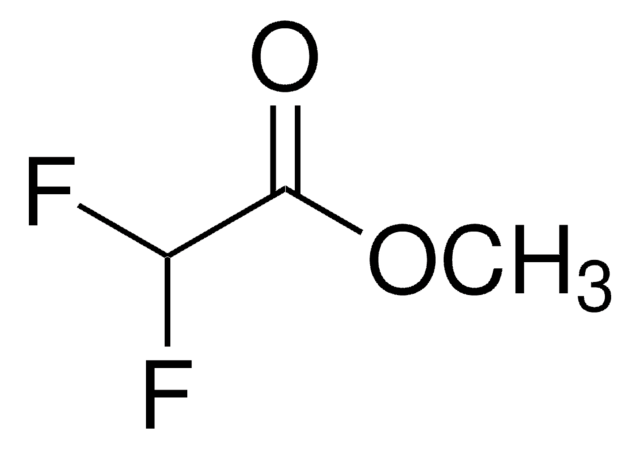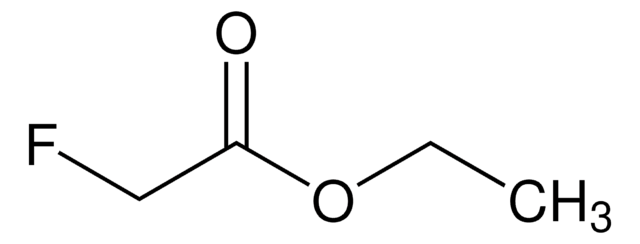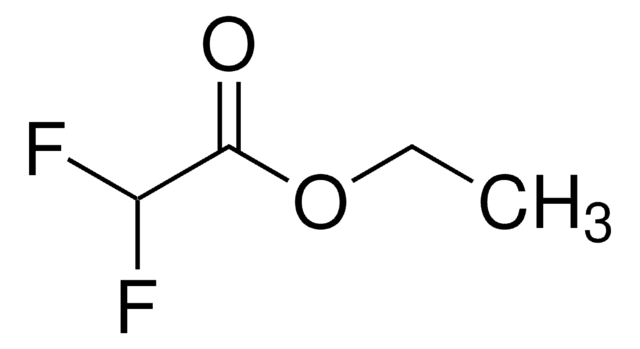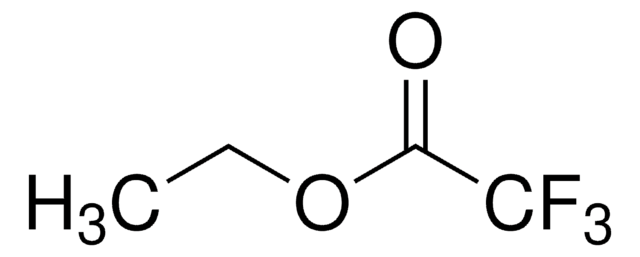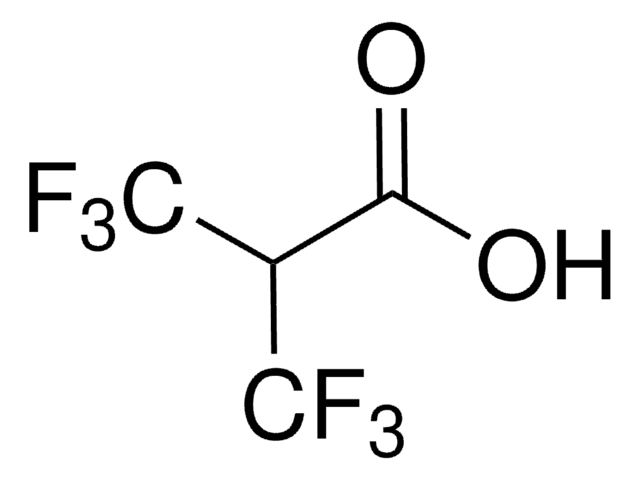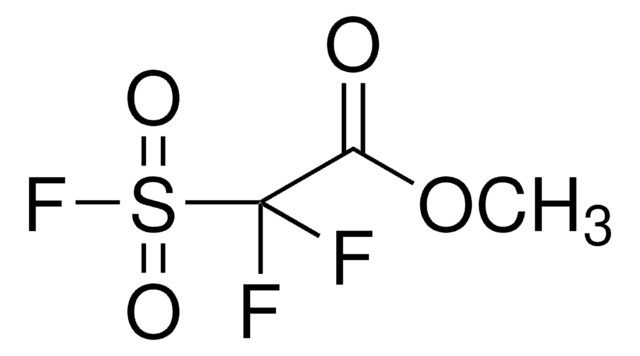All Photos(1)
About This Item
Linear Formula:
CF3CH2CH2CO2C2H5
CAS Number:
Molecular Weight:
170.13
MDL number:
UNSPSC Code:
12352100
PubChem Substance ID:
NACRES:
NA.22
Recommended Products
Quality Level
Assay
≥98%
form
liquid
refractive index
n20/D 1.3516 (lit.)
bp
127 °C (lit.)
density
1.16 g/mL at 25 °C (lit.)
functional group
ester
fluoro
SMILES string
CCOC(=O)CCC(F)(F)F
InChI
1S/C6H9F3O2/c1-2-11-5(10)3-4-6(7,8)9/h2-4H2,1H3
InChI key
PSRZMXNNQTWAGB-UHFFFAOYSA-N
Related Categories
General description
Ethyl 4,4,4-trifluorobutyrate is an ethyl ester of 4,4,4-tributyric acid. It is a useful spin trapping reagent used for ESR/EPR spectroscopy. It can be synthesized from Grignard reagent derived from 3-chloro-1,1,1-trifluoropropane..
Signal Word
Warning
Hazard Statements
Precautionary Statements
Hazard Classifications
Acute Tox. 4 Oral - Eye Irrit. 2 - Flam. Liq. 3 - STOT SE 3
Target Organs
Respiratory system
Storage Class Code
3 - Flammable liquids
WGK
WGK 3
Flash Point(F)
91.4 °F - closed cup
Flash Point(C)
33 °C - closed cup
Personal Protective Equipment
dust mask type N95 (US), Eyeshields, Gloves
Choose from one of the most recent versions:
Already Own This Product?
Find documentation for the products that you have recently purchased in the Document Library.
R T Jacobs et al.
Journal of medicinal chemistry, 37(9), 1282-1297 (1994-04-29)
The continued exploration of a series of 3-(arylmethyl)-1H-indole-5-carboxamides by the introduction of fluorinated amide substituents has resulted in the discovery of 4-[[5-[((2R)-2-methyl-4,4,4-trifluorobutyl)carbamoyl]-1-methyli ndol- 3-yl]methyl]-3-methoxy-N-[(2-methyl-phenyl)sulfonyl]benzamide (38p, ZENECA ZD3523), which has been chosen for clinical evaluation. This compound exhibited a Ki of
The Journal of Organic Chemistry, 60, 5434-5434 (1995)
Compounds Derived from 3-Halo-1, 1, 1-trifluoropropane1, 2.
McBee E, et al.
Journal of the American Chemical Society, 72(11), 5071-5073 (1950)
Our team of scientists has experience in all areas of research including Life Science, Material Science, Chemical Synthesis, Chromatography, Analytical and many others.
Contact Technical Service